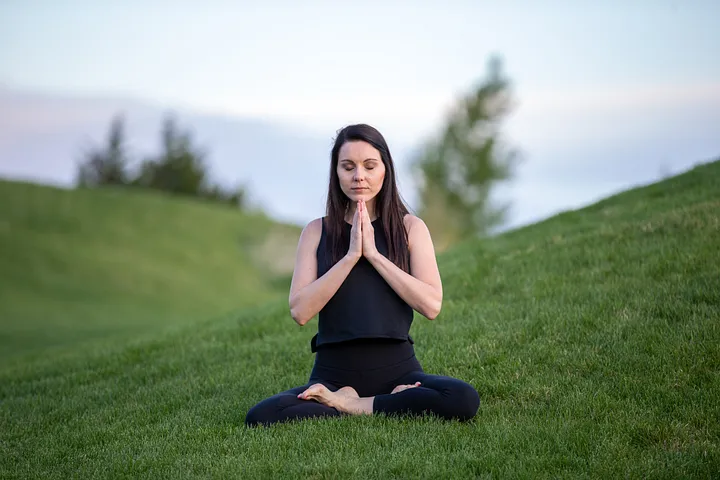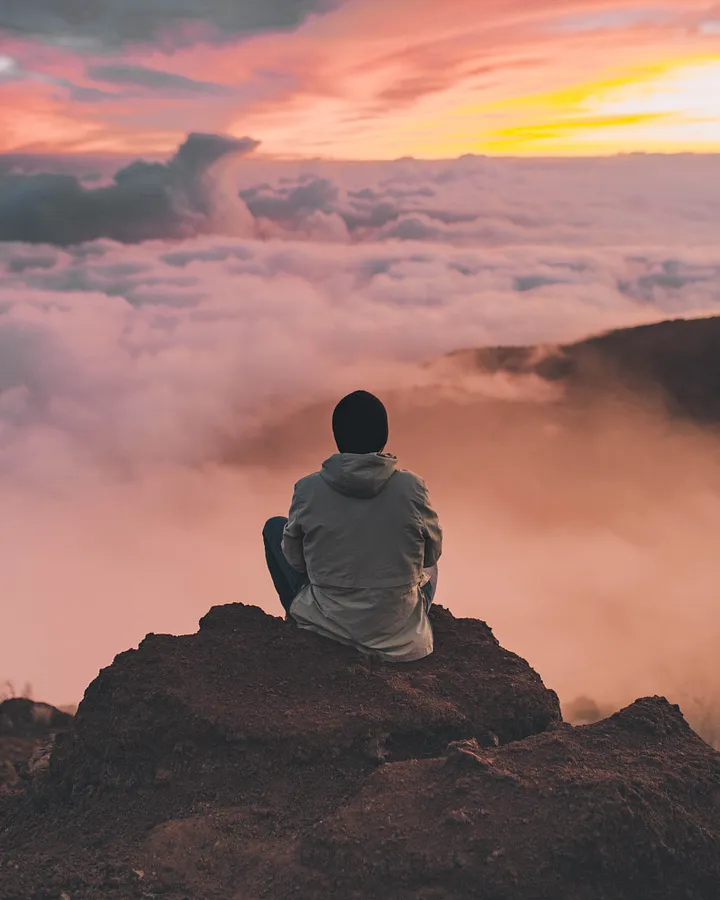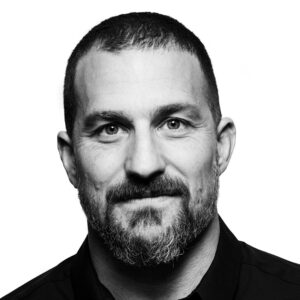I love “THE ROCK,” aka Dwayne Johnson, and let’s start with his quote.
I meditate in the morning; I have my centering; I need that. For me, training is also my meditation. — The Rock
I am a huge fan of 30-day challenges to develop healthy, sustainable habits to boost productivity. This year, I have completed 15 30-day challenges.
For example, there is the 3-liter water challenge, the daily one-tomato olive oil challenge, and the squat challenge; here is the complete list if you would like to explore further.
Let’s start with the basics.
Why a 30+ days meditation challenge?
I firmly believe that a challenge keeps you accountable.
I also believe that I am not going to enjoy every challenge, and it’s the best way to know if it’s worth developing this habit.
The probability is pretty high that a meditation challenge might help you to change your life for the better.
Background: What does the latest research say about meditation?
The latest research says that meditation trains the mind to focus on an experience or object, and according to this research, meditation benefits students who are stressed before exams.
Science also says that meditation can increase patience and tolerance.
How to start a 30+ day meditation challenge
Time required: Merely 10 minutes, or choose whatever amount of time is comfortable for you.
- Nike step → Just do it (Take the first step and commit to it.)
- Stick with it regardless of the results in the first 1–2 weeks
- Sit comfortably
- Look at the wall, clock, or anything in front of you
- Start staring with comfortable eyes (yes, so simple)
- Eyes open while inhaling
- Eyes closed while exhaling.
- After inhaling and exhaling 5–6 times, you might feel it’s hard to keep your eyes open.
- Simply close the eyes for the rest of the 7–8 minutes.
Did I use an app?
The answer is an absolute NO.
I simply use the Alexa timer for 10 minutes and sometimes no timer at all.
What is the best time to meditate?
It’s a pretty tricky question; a simple Google search will give you 1000+ answers.
After having my warm glass of lemon water, I felt it was pretty easy to do the meditation first thing in the morning.
I also tried the very last thing right before bed for a couple of days, but that did not help me a lot. Your goal is to relax. That’s it!
Note: I also observed that meditation has a positive effect through repetition.
We all know that practice is the key. You will be wandering in the first couple of weeks.
Don’t force yourself to control your thoughts; simply pay attention to your inhaling and exhaling exercise.

Let’s dive into the exploring parts.
Week 1: On understanding meditation
To understand the immeasurable, the mind must be extraordinarily quiet, still. — Jiddu Krishnamurti
There is no wonder why more and more people get into the habit of meditating.
Meditation alleviates the feelings of stress, improves the capability of handling your emotions, and enhances the positivity of your energies.
More than just a mental exercise, there are more profound points and dimensions of one’s being that the effects of regular and constant practice of meditation can caress.
However, I learned in my first week that the principles of meditation are tough to master.
Focus, concentration, and the ultimate letting go for a moment may be a great challenge on your first attempt to meditate.
It is never easy to get out of your waking consciousness as you close your eyes and start meditating for the first time.
As you try to close your eyes for your first-time meditation, you will see so many images in your mind and feel different sets of emotions that will completely distract you.
In my first week, I learned that with all of these disturbances, I am not meditating. Instead I felt I was just closing my eyes.
Week 2:
Meditation is the action of silence. — Jiddu Krishnamurti
In my experience, I observed that in the second week, being silent and still every day and observant of a deeper inner core settles chaotic feelings and thoughts.
The silence and stillness contribute to a great orderliness inside of me. The goal of meditation is to achieve calmness and complete serenity within yourself.
Thus, a 30+ days meditation challenge will help you improve your focus and concentration and let go of your thoughts.
Setting a time or a duration lets you focus on the importance of your purpose and why you decided to do and practice meditating.
It implies and imposes an affirmation in your mind and heart to be consistent with your development in the practice of meditation.
In the second week, I learned that letting go and breaking free from any thoughts, emotions, feelings, moods, desires, or any conditional state and situation is the key to practicing meditation.
Week 3:
Detachment is not giving up the things in this world but accepting the fact and being continuously aware that nothing is permanent. — Aditya Ajmera
One of the primary purposes of meditation is to detach mainly from the unnecessary emotions and thoughts that block you from achieving the best state of being and wellness.
In week 3 of meditating, after continuous practicing and learning a lot about meditation, I understood that the essence of detaching from the material things that worry and disturb my peace is the key to living a happy life.
This means that meditation brings you inner peace and clarity that defines a clear picture of how you should feel, think, and respond to a situation in your waking life in an orderly manner.
Week 4:
When there are thoughts, it is distraction: when there are no thoughts, it is meditation. — Ramana Maharshi
During meditation, the solemnity and peace of mind go deep into one’s core that is not expressed nor surfaced in the ordinary waking consciousness.
Thus, when one meditates, the whole body systems take its calmness to the next level, and all the energies move along in harmony to alignment.
The kind of alignment achieved defines a full new understanding of one’s authentic self in relation to the external environment. By the fourth week of my meditation journey, I felt calmer.
You must be ready to express the emotions and thoughts that you have reflected upon throughout the duration of the challenge.
These are the meditation lessons after 35 days.
Meditation practice isn’t about trying to throw ourselves away and become something better. It’s about befriending who we are already. — Pema Chodron
I would say starting a 30-day meditation challenge is way better than doing nothing or postponing all the time. I also learned that for more tangible results, I need to practice more.
- After my first week, I saw no benefit except sitting down and trying to get rid of all the thoughts. I felt like my brain was just overthinking.
- The first week was just about understanding.
- Most importantly, I did not miss a single day of practice. In the second week, I observed my thoughts were as chaotic as in the first week, which means there is some progress.
- I definitely see the light at the end of the tunnel. I feel my thoughts are more stable, and I’m thinking or repeating a couple of thoughts.
- I meditated first thing in the morning; I observed it increased my concentration and attention span. It might be my running challenge which I am doing right after the meditation but before work.
- I did not see any stress reliever thing; I am usually a lower-stress guy.
- One thing I can 100% guarantee is that meditation definitely helps you to become more purposeful about your actions.
- It helps you to calm down and take the time to respond rather than react.
- Meditation helps me to understand mindful thoughts vs. just noise.
The bottom line
In the beginning, I thought meditation was just a waste of time.
However, after this 30+ days of meditation challenge, you will see and experience more calmness in your life.
I’m in my early 30s and doing a couple of self-care challenges; I also observed that meditation is a type of self-care that I need more practice to understand.
By the way, my medication challenge did not stop after 35 days. I think I’m going to continue to bring more calmness to life.
Consistency is the key.
My Supplements Stack
Many readers asked if I consume any supplements. Yes, I do. However, I consider supplements as add-ons, not solid meal replacements.
I prefer to eat whole foods and avoid canned ones. I also believe that recent food quality has lacked proper nutrition, so I take supplements to fill the gap.
I only consume proven and continuously consumed supplements by scientists like Andrew Huberman or experimental gentleman Tim Ferris. Supplements will help you enhance your overall life.
| What I Take & Why | Supplement Name – Optimize your health journey |
| Sleep Supplements Preferred to take 30 – 60 minutes before bedtime. | Magnesium L-Threonate –> 144 mg Apigenin –> 50 mg L-Theanine –> 200 mg |
| Supplements for Brain Performance | Creatine –> low dose (5 grams) taken daily Omega-3 Fatty Acids –> 2-3 of EPA daily1 Phenylethylamine (PEA) |
| Anti-inflammatory Supplements | Turmeric / Curcumin with Black Pepper -> Joint Support N-Acetyl Cysteine (NAC) –> Support immune function Methylsulfonylmethane (MSM) –> for treating injuries Athletic Greens –> as “nutritional insurance” |
| Physical Performance + Recovery Supplements | Grass Fed Whey Protein –> Joint health and recovery Alpha-GPC –> Before a workout L-Tyrosine –> To enhance exercise performance Branched-Chain Amino Acids –> to enhance muscle building & recovery L-Glutamine –> for gut health and muscle recovery Zinc –> for exercise recovery (muscle damage) |
| Immune Support Supplements | L-Lysine –> to combat viral infections and cold sores Apple Cider Vinegar –> to boost immunity Medicinal Mushrooms –> to enhance immune function |




